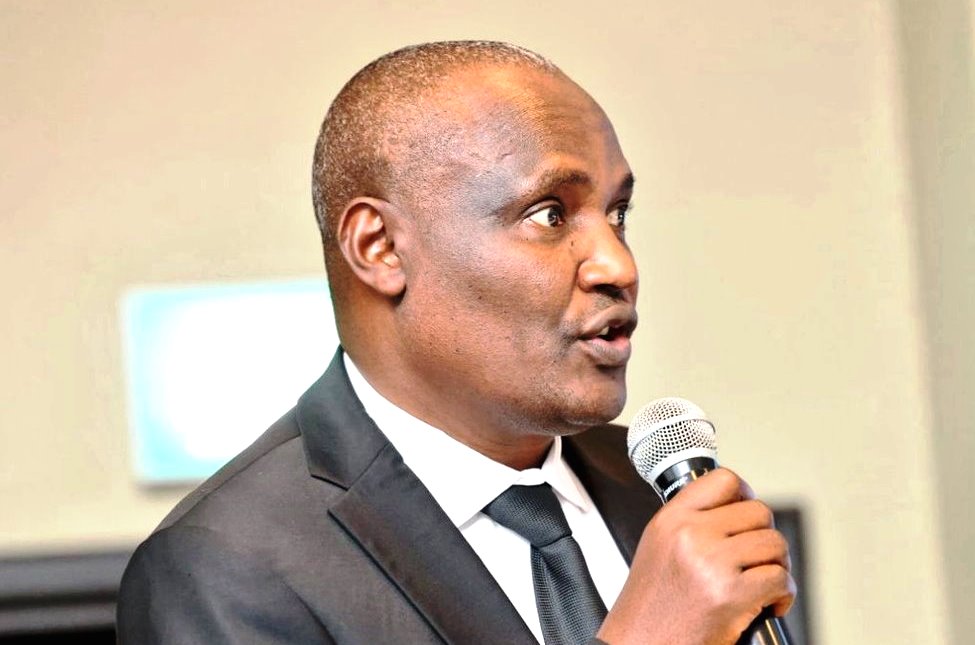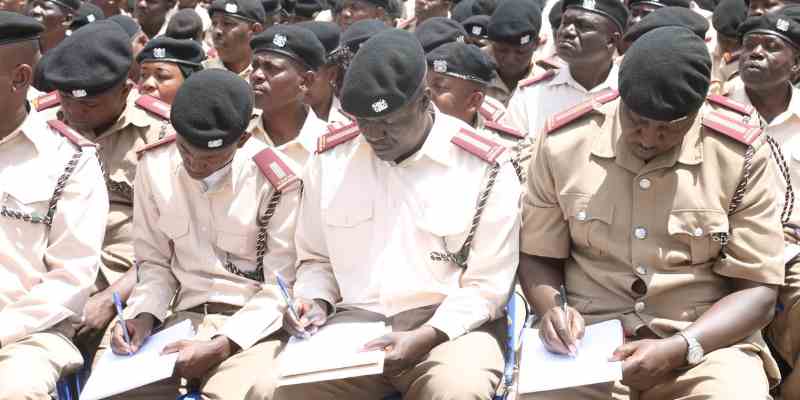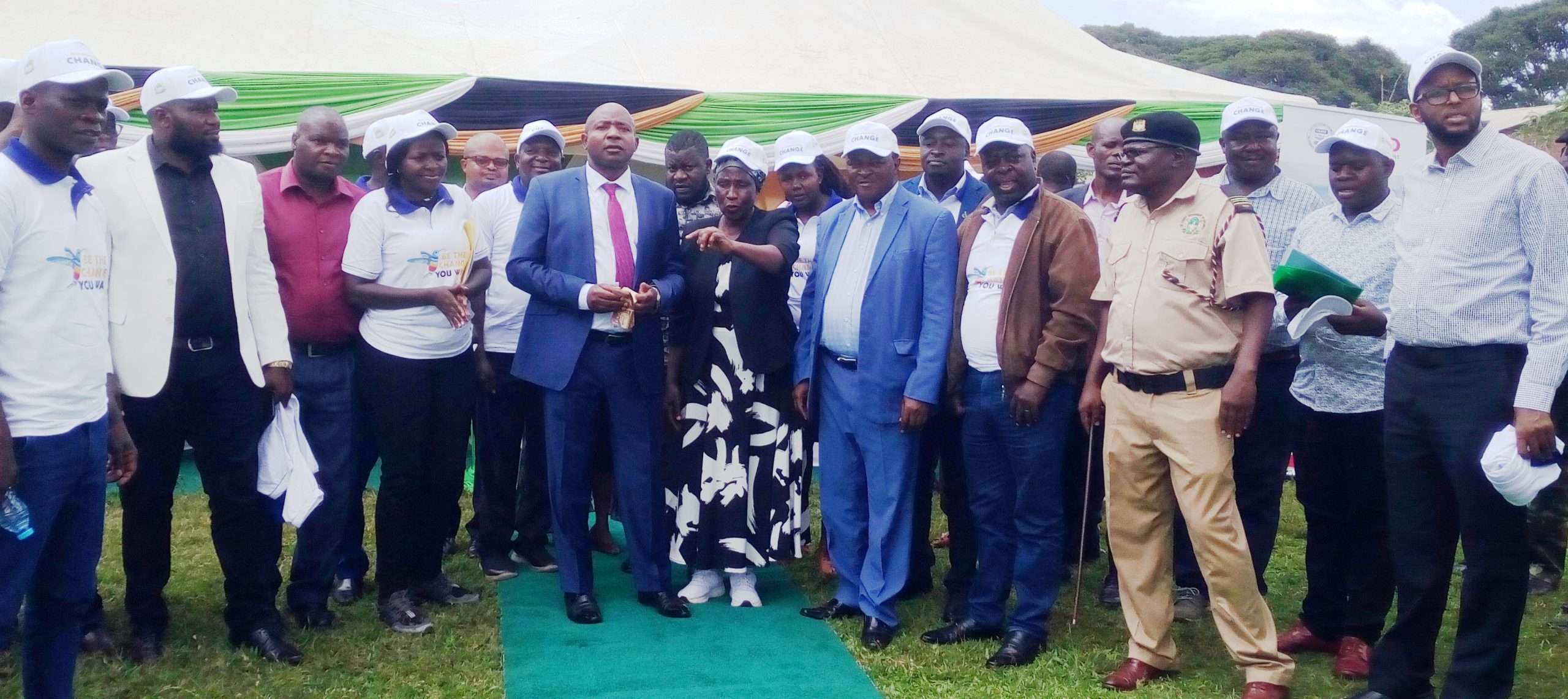In addition to the Ksh 405.1 billion equitable share, Mbadi is proposing an additional Ksh 10.6 billion for the Equalisation Fund, which includes Ksh 7.9 billion, representing 0.5 per cent of the most recently audited and approved actual revenues. The Equalisation Fund is designed to finance development programmes aimed at reducing regional disparities among beneficiary counties
A clash is imminent in the Senate following the National Treasury’s proposal to allocate Ksh 2.4 trillion to the National Government and Ksh 405.1 billion to the 47 devolved units under the Division of Revenue Bill 2025.
The primary objective of the bill is to ensure an equitable division of revenue raised by the National Government among both National and County Governments, facilitating the proper functioning of governments and ensuring the continuity of service delivery to citizens.
In addition to the Ksh 405.1 billion equitable share, Mbadi is proposing an additional Ksh 10.6 billion for the Equalization Fund, which includes Ksh 7.9 billion as 0.5 per cent of the last audited and approved actual revenues. The Equalization Fund is designed to finance development programmes aimed at reducing regional disparities among beneficiary counties.
Mbadi is also proposing unconditional and conditional additional allocations from the National Government totalling Ksh 12.8 billion. These allocations include Ksh 11.5 million from court fines, Ksh 1.7 billion to cover doctor’s salary arrears, and Ksh 4.5 billion for the establishment of County Integrated Agro-Industrial Parks, alongside other notable allocations such as Ksh 3.2 billion for Community Health Promoters (CHP) and Ksh 454 million for the construction of County Headquarters.
The Ksh 405.1 billion allocation, however, differs from the proposal made by the Commission on Revenue Allocation (CRA), which recommended Ksh 417 billion for the equitable share to be disbursed to counties.
County governments are allocated an equitable share of revenue, an unconditional allocation that allows counties the autonomy to plan, budget, and implement development projects based on their priorities and to account for the same.
However, National Treasury Cabinet Secretary John Mbadi has urged Parliament to approve the Division of Revenue Bill 2025. If passed in its current form, it would see County Governments receive Ksh 405 billion as their equitable share.
While the National Treasury is proposing an increase of Ksh 17.6 billion to County Governments’ equitable share, the CRA has proposed an increase of Ksh 30 billion for the 2025/26 financial year, resulting in a difference of Ksh 12.4 billion.
Mbadi, in his document sent to Parliament, argues that these figures reflect trends in performance, increased expenditures for the National Government, and financial constraints due to limited access to both domestic and international financial markets.
Furthermore, Mbadi stated that there has been low ordinary revenue collection due to ongoing geopolitical shocks and the government’s commitment to implementing a fiscal consolidation plan aimed at reducing the fiscal deficit to 4.3 per cent of GDP in the 2025/2026 financial year.
“The bill proposes to allocate County Governments Ksh 405.1 billion for the 2025/2026 financial year as an equitable share of revenue raised nationally, translating to an increase of Ksh 17.6 billion from the Ksh 387.4 billion allocated in the 2024/25 financial year,” reads the proposed law.
The National Treasury has also proposed an allocation of Ksh 2.4 trillion for the National Government.
In the Division of Revenue Bill 2024, Counties were allocated Ksh 401.1 billion, a figure rejected by Senators, who instead passed Ksh 407 billion. However, after the collapse of the Finance Bill 2024 following protests from Gen Z, the equitable share was later revised to Ksh 387.4 billion.
In arriving at the Ksh 2.4 trillion for the National Government and Ksh 405.1 billion for Counties, Mbadi argued that the National Government continues to bear the shortfalls in revenue in any given financial year, while County Governments continue to receive their full allocation despite budget cuts affecting the National Government.
“The proposed equitable share for the 2025/26 financial year of Ksh 405.1 billion is equivalent to 25.8 per cent of the last audited and approved revenues raised nationally, amounting to Ksh 1.57 trillion for the 2020/21 financial year, pursuant to Article 2013 (3) of the Constitution,” reads part of the proposed law.
Article 218 (2) (b) of the Constitution requires the division of revenue between the two levels of government and among County Governments to take into account factors such as national interest, public debt, national obligations, and the needs of disadvantaged groups and areas.
According to Mbadi, national interest programmes, such as those aimed at enhancing security operations, national irrigation and fertilizer subsidy initiatives, youth empowerment, provision of a national social safety net for vulnerable groups, and school examination fee subsidies, will receive increased funding. Mbadi noted that the allocation for these programmes is expected to rise by Ksh 8.8 billion, from Ksh 92.5 billion in 2024/25 to Ksh 101.3 billion in 2025/26.
“This increase is largely accounted for by the Ksh 4.6 billion increase in expenditure on the National Safety Net programme, aimed at covering elderly persons under the Indigent Fund for Social Health Authority, and Ksh 4 billion additional funding for school examination fees,” Mbadi stated.
Mbadi further explained that the bill also considers public debt-related costs, including annual debt redemption costs and interest payments for both domestic and external debt.
For the 2025/26 financial year, the allocation for public debt-related costs is expected to increase from Ksh 1.34 trillion in 2024/25 to Ksh 1.6 trillion in 2025/26, reflecting an increase of Ksh 265.8 billion.
In a further escalation of tensions between the Senate and the National Assembly, Mbadi has proposed Ksh 26.3 billion for the National Government Constituency Development Fund (NG-CDF) and Ksh 3.5 billion for the Affirmative Action Social Development Fund.
Additionally, Mbadi asserts that the Division of Revenue Bill 2025 has factored in other national obligations, such as mandatory pension contributions, payments, and funding for constitutional offices, including Parliament and the Judiciary, as provided under Article 203 (1) (b) of the Constitution.
“After considering the expenditures as well as debt-related costs, the National Government is left with a deficit of Ksh 64.6 billion, which will further stretch borrowing and increase public debt,” reads Mbadi’s proposal.





